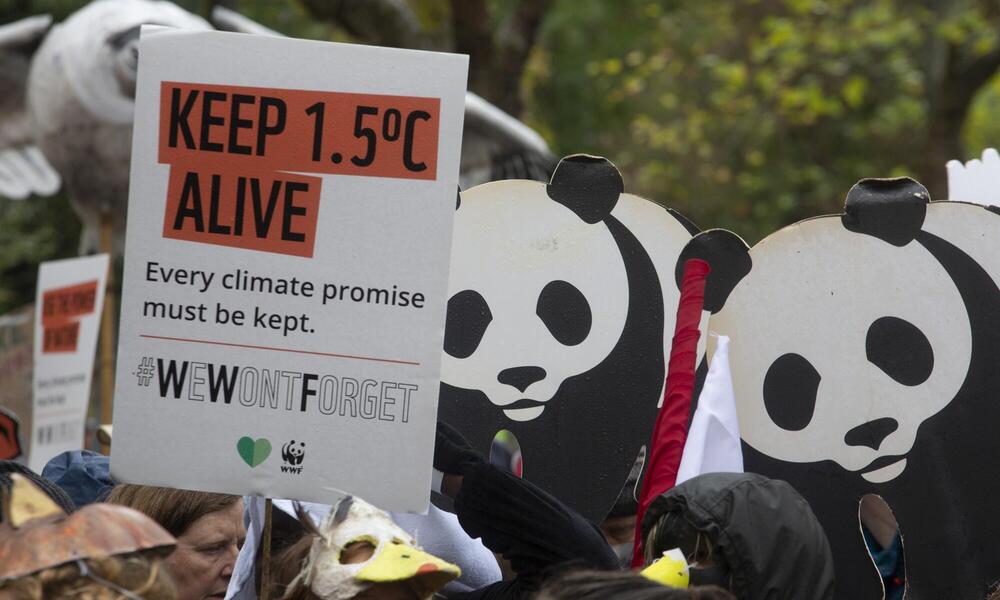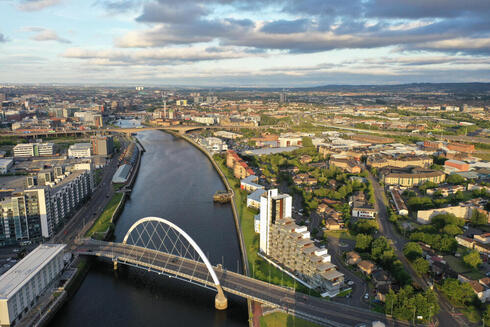The commitments we saw in the first week of COP are the kinds of commitments we want to see from governments—marshalling the money and the ambition to cut emissions, a shift towards clean energy, implementing nature-based solutions, and adapting to the climate impacts that are already occurring with more frequency and intensity. And in all these things, not losing sight of the needs of frontline, Indigenous, and marginalized communities, who feel impacts first and worst, and often have fewer available resources to meet the challenge of the climate crisis.
Nature had a moment at this COP. For the first time, we’re seeing governments make significant commitments to Nature-based Solutions, recognizing that these solutions can, if we work them right, provide up to 30% of the emissions reductions needed to reach our climate goals.
At the beginning of the second week, former President Obama addressed the COP. His presence sent a shot of electricity through the building as he spoke directly to the youth. He urged them to push for more action through protest and marches, but also said they must vote, use their power as consumers and employees and be the voice that convinces their parents and relatives of the importance of addressing the climate crisis.
In a surprise move, the US and China announced a joint agreement to reduce methane emissions, transition from fossil fuels to clean energy, and to stop deforestation. That the two countries emitting the most carbon are now committed to working together to achieve the climate goals of the Paris Agreement is a hopeful moment, showing that countries are finally hearing the message on climate ambition. We will of course need to see these agreements become actions, but it’s an important signal.
What was also clear for me at this COP, is that national governments can and should build a foundation for change with regulations and incentives, but it is ultimately everyone else—businesses, state and local governments, academic and religious institutions, and other community-based groups—who are going to do the actual work of decarbonizing our economy and adapting to our new climate reality.
I saw the excitement coming out of the US Climate Action Center for Subnational and Non-state actors which was sponsored at the WWF Pavilion and managed by our ‘America Is All In’ team. Presented were a wide range of efforts that included everything from the resilience plans of Mayors to the voices of Indigenous, and marginalized communities around the use of nature-based solutions, to cultural institutions educating local communities to Governors creating multi-state coalitions to work on common emission reduction actions.
What these efforts had in common is that they embraced all segments of society, but especially frontline, vulnerable communities whose outcomes will be the ultimate measure of our success in addressing climate change.
The COP went into extra sessions, emerging with what is now being called the Glasgow Climate Pact. It’s got some real firsts—a commitment to work towards more ambitious climate targets in 2022, (vs. 2025) and a commitment of more climate finance—particularly for adaptation—to developing nations. But that progress is paired with painfully noticeable gaps. The commitments to developing nations will not apply to loss and damage. The key role of nature remains unrecognized. And at the last minute, the first specific mention in an international climate agreement of the transition away from fossil fuels was watered down -- China and India softened the language from “phasing out” to “phasing down.”
This mixed bag of results from the COP highlights the work that remains for us to do. On the positive side, we were able to keep the 1.5 degree Paris goal from slipping beyond our grasp. But conversely, that is not the same thing as actually meeting the moment and securing our future. The desire for increased ambition is strong, but concrete action plans to support new targets are still lacking. We are in some ways where we were at the beginning of COP—needing more action, not promises. Coming out of Glasgow, the focus must shift to the steps countries will take to make the pledges a reality.

